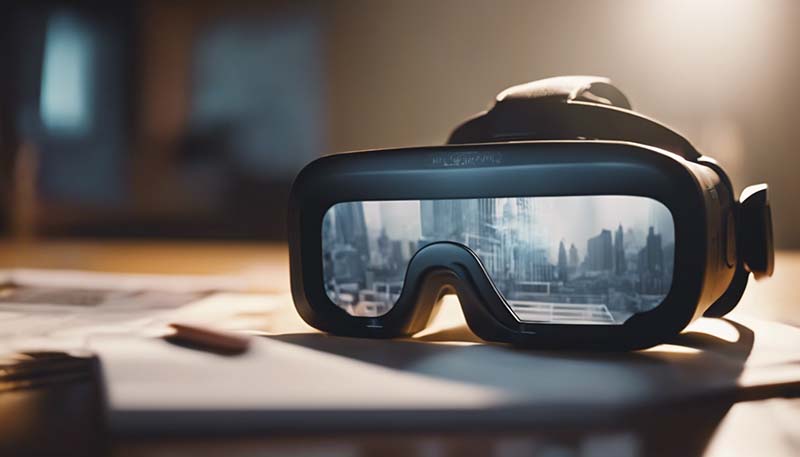The Role of Virtual Reality in Legal Education
Virtual reality (VR) is a technology that has been rapidly evolving over the past few years,offering immersive experiences that can revolutionize various sectors,including education.In the context of legal education,VR has the potential to transform how law students learn,practice,and engage with the legal system.This article explores the role of virtual reality in legal education,discussing its benefits,challenges,and future prospects.
Introduction to Virtual Reality
Virtual reality is a computer-generated simulation of an environment or situation that can be interacted with in a seemingly real or physical way by a person using special electronic equipment,such as a VR headset.It creates a three-dimensional environment that allows users to experience a sense of presence and interaction within the virtual world.
The Benefits of VR in Legal Education
1.Enhanced Learning Experience
VR can provide a more engaging and interactive learning experience for law students.By simulating real-life legal scenarios,VR can help students better understand complex legal concepts and procedures.
2.Practical Skills Development
Virtual reality can be used to develop practical skills,such as negotiation,client counseling,and courtroom advocacy.Students can practice these skills in a safe and controlled environment,receiving immediate feedback and the opportunity to refine their techniques.
3.Access to Diverse Legal Scenarios
VR can expose students to a wide range of legal scenarios that might be difficult or expensive to replicate in real life.This can help students gain a broader understanding of the legal system and the diverse issues it addresses.
4.Collaboration and Networking
Virtual reality can facilitate collaboration among law students and legal professionals from around the world.It can also provide opportunities for networking and building professional relationships,which are crucial for career development in the legal field.
Challenges of Implementing VR in Legal Education
1.Cost and Accessibility
The cost of VR equipment and software can be a barrier to implementing VR in legal education.Additionally,not all students may have access to the necessary technology to participate in VR experiences.
2.Technical Difficulties
Technical issues,such as software bugs or hardware malfunctions,can disrupt the VR experience and hinder the learning process.Ensuring that the technology functions smoothly and reliably is essential for effective VR-based learning.
3.Ethical Considerations
There are ethical considerations to be addressed when using VR in legal education,such as ensuring that the virtual scenarios are accurate representations of real-life situations and respecting the privacy and dignity of individuals represented in the VR environments.
The Future of VR in Legal Education
As virtual reality technology continues to advance and become more affordable,it is likely that its role in legal education will expand.Future developments may include more sophisticated simulations,increased interactivity,and the integration of artificial intelligence to create personalized learning experiences.
Moreover,as legal professionals increasingly recognize the value of VR in legal education,there may be a growing demand for law schools to incorporate VR into their curricula.This could lead to a new wave of innovation in legal education,with VR playing a central role in preparing the next generation of legal professionals.
Conclusion
In conclusion,virtual reality has the potential to significantly impact legal education by providing an immersive,interactive,and practical learning experience.While there are challenges to overcome,the benefits of VR in legal education are promising and warrant further exploration and implementation.As technology continues to evolve,VR is likely to play an increasingly important role in shaping the future of legal education and the legal profession as a whole.
Comment